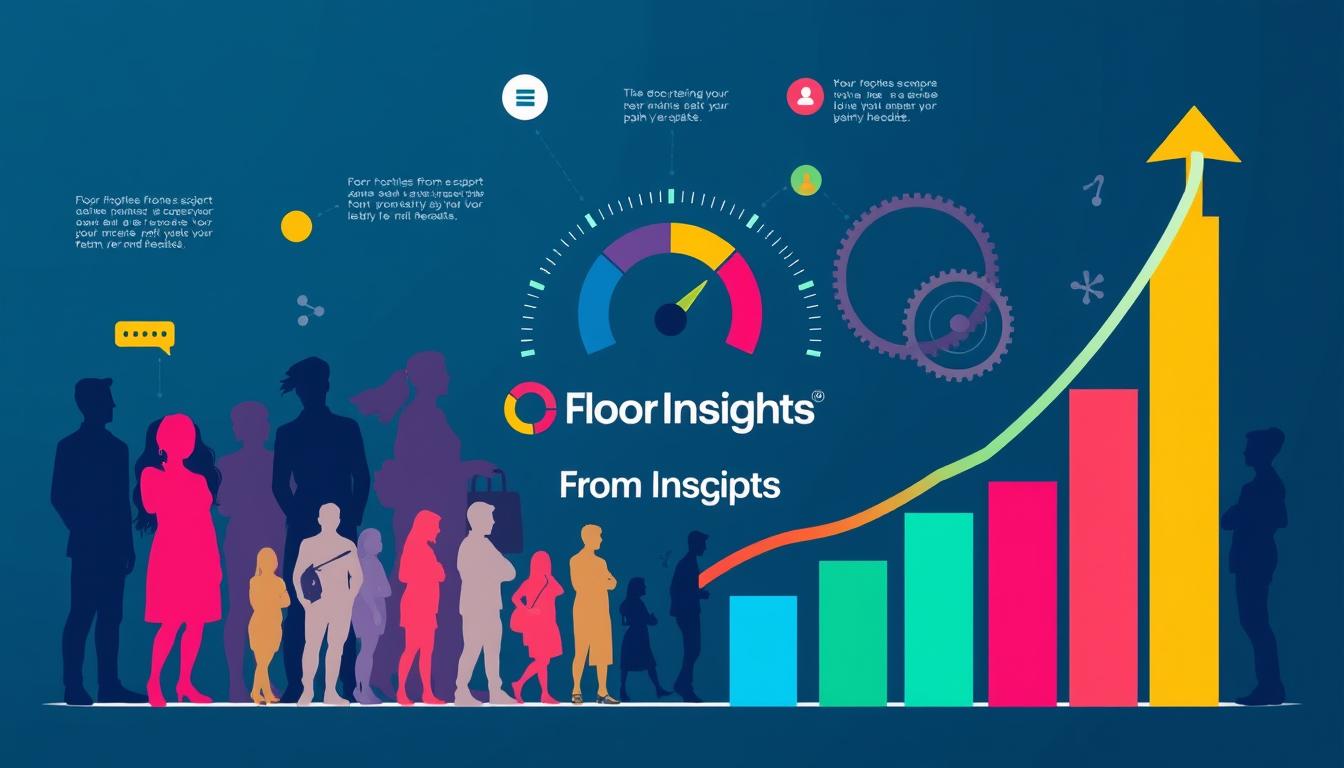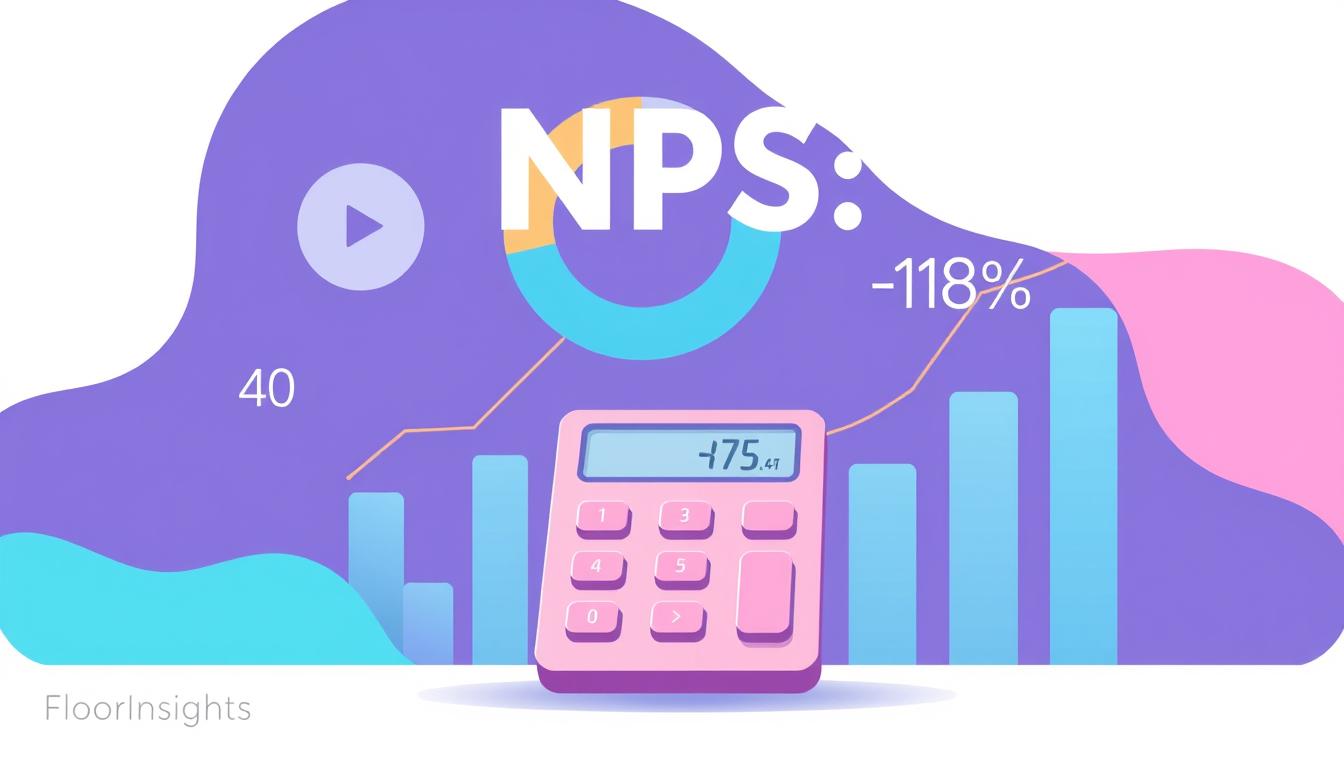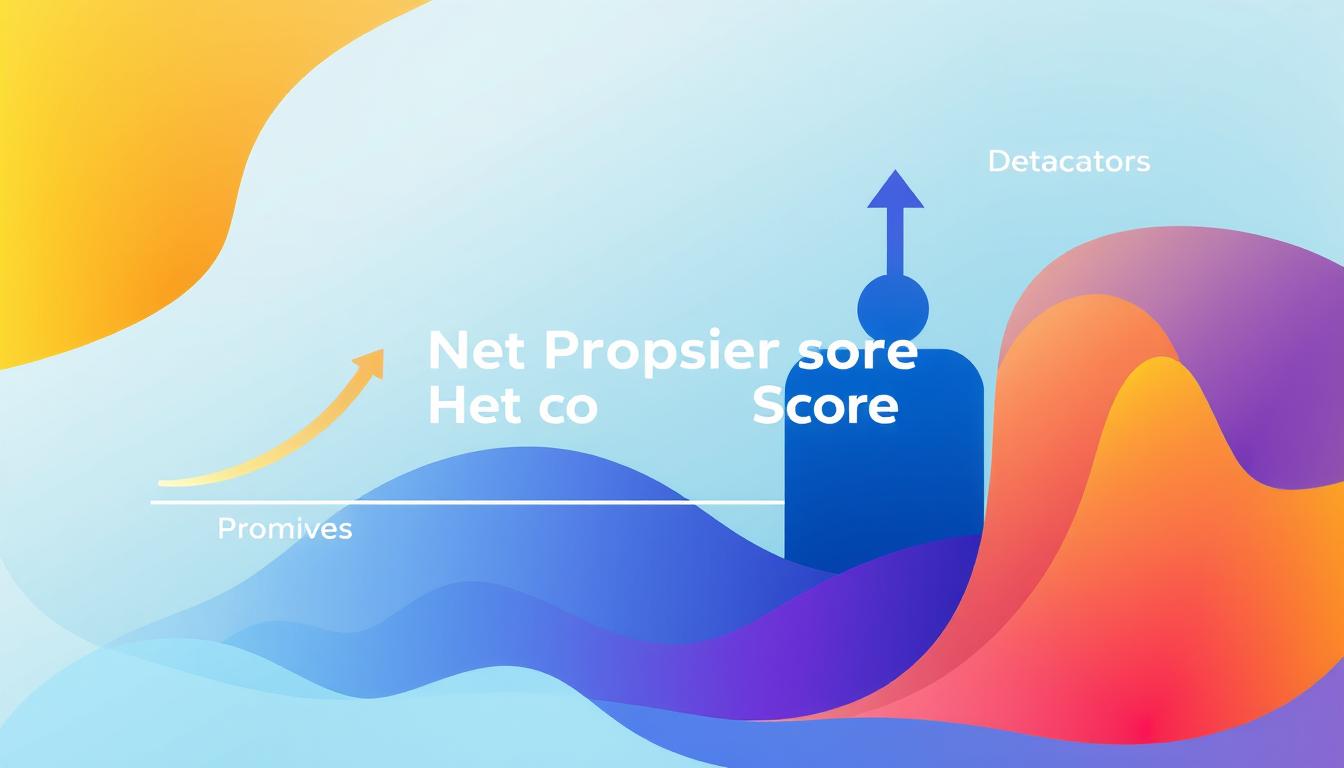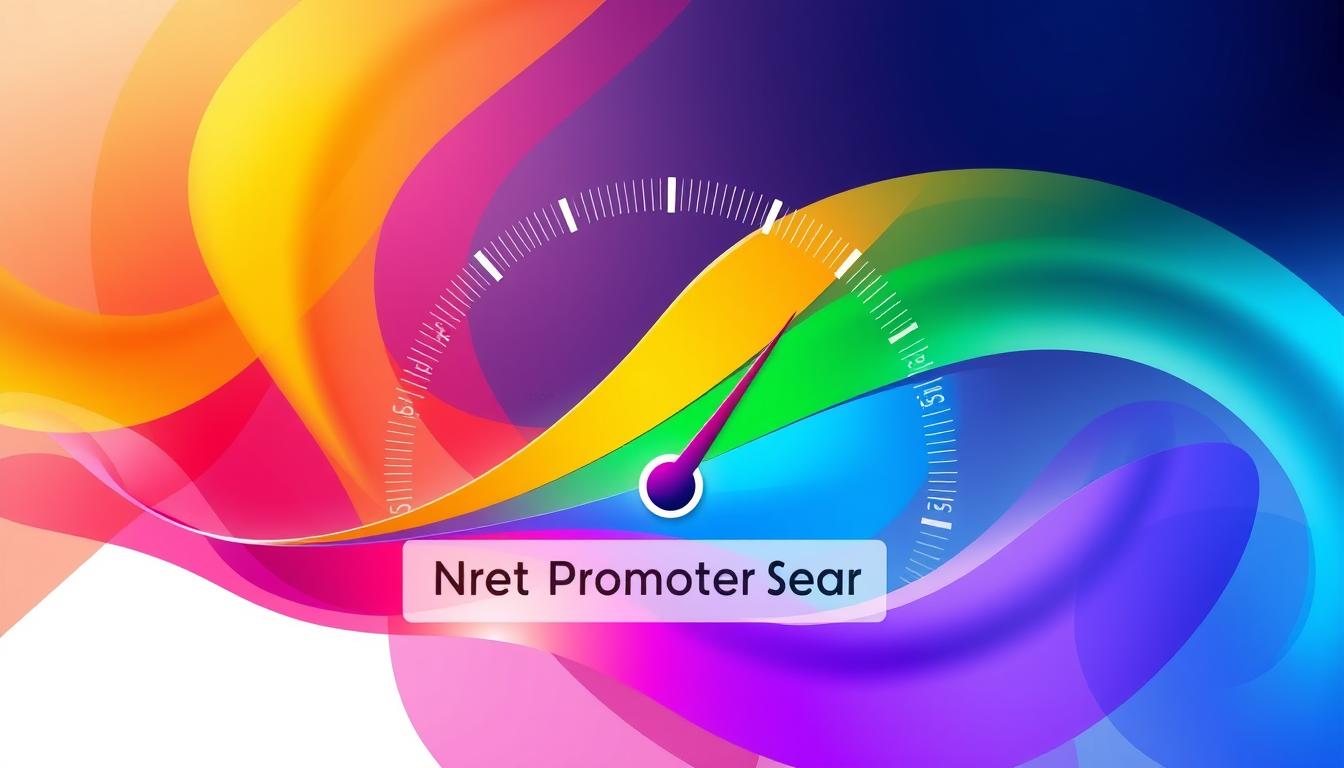In today’s rapidly evolving business landscape, the Net Promoter Score (NPS) has emerged as a crucial metric that separates industry leaders from their competitors. Companies with a high NPS consistently outperform their peers, showcasing the strong correlation between customer loyalty, advocacy, and sustained business growth. As we explore the Indian market, understanding the reasons behind this phenomenon and the strategies to leverage the power of NPS becomes essential for driving long-term success.
Key Takeaways
- The Net Promoter Score (NPS) is a powerful metric that reflects customer loyalty and advocacy.
- Companies with a high NPS consistently outperform their competitors in various aspects of business performance.
- Understanding the link between NPS, customer satisfaction, and customer experience is crucial for driving sustainable growth.
- Strategies that focus on enhancing customer engagement, feedback, and retention can significantly boost a company’s NPS and overall competitiveness.
- Leveraging the insights from NPS can help businesses in India improve their customer lifetime value and advocacy, leading to long-term success.
What Is Net Promoter Score?
The Net Promoter Score (NPS) is a widely used customer loyalty metric that measures the willingness of customers to recommend a company’s products or services to others. This simple yet powerful metric provides businesses with a clear and actionable insight into customer loyalty, which is closely tied to a company’s long-term growth and profitability.
Definition and Calculation
NPS is calculated by asking customers a single question: “How likely are you to recommend our company/product/service to a friend or colleague?” Customers respond on a scale of 0 to 10, with 0 being “not at all likely” and 10 being “extremely likely.” The NPS is then calculated by subtracting the percentage of “detractors” (those who score 0-6) from the percentage of “promoters” (those who score 9-10). The resulting score ranges from -100 to 100, with a higher score indicating a more loyal customer base.
Importance of NPS in Business
NPS has become a widely adopted metric because it provides a clear and actionable insight into customer loyalty, which is closely tied to a company’s long-term growth and profitability. Companies with high NPS scores tend to outperform their competitors, as satisfied and loyal customers are more likely to make repeat purchases, provide positive word-of-mouth referrals, and contribute to a company’s overall success.
“Net Promoter Score is the one number you need to grow.” – Fred Reichheld, Bain & Company
Understanding Customer Loyalty
Customer loyalty is the cornerstone of any successful business. It’s the strong bond that forms between a customer and a brand, product, or service, leading to consistent and repeat patronage. Companies that excel at fostering customer loyalty enjoy a significant competitive advantage, reaping the benefits of increased revenue, better customer lifetime value, and lower customer acquisition costs.
Benefits of Customer Loyalty
When customers are loyal to a brand, they are more likely to make repeat purchases, spend more, and actively recommend the company to their friends and family. This not only drives revenue growth but also reduces the cost of acquiring new customers. Loyal customers are also less price-sensitive, allowing businesses to maintain healthy profit margins.
Factors Influencing Customer Loyalty
Several key factors contribute to the development and sustenance of customer loyalty. Chief among these are the quality of the customer experience, the level of customer engagement, and the company’s ability to consistently meet or exceed customer expectations. By understanding and strategically addressing these drivers, businesses can build a loyal customer base that serves as a strong foundation for long-term success.
“Loyal customers are the most valuable assets a company can have. They not only drive repeat business, but also act as brand ambassadors, actively promoting the company to their peers.”
To cultivate customer loyalty, companies must focus on delivering exceptional customer service, personalized customer experiences, and engaging with customers through various touchpoints. By consistently exceeding customer expectations and fostering strong emotional connections, businesses can establish a loyal customer base that serves as a reliable source of revenue and growth.
Net Promoter Score and Customer Satisfaction
The Net Promoter Score (NPS) is a valuable metric that directly reflects customer satisfaction. Companies with high NPS typically enjoy strong customer loyalty, as satisfied customers are more inclined to become brand advocates and recommend the business to others.
By focusing on enhancing the customer experience and addressing any pain points, organizations can boost their NPS and, in turn, drive higher customer satisfaction levels. This positive feedback loop creates a virtuous cycle, where satisfied customers become loyal promoters, amplifying the company’s reputation and attracting new business.
| Metric | Description | Impact on Customer Satisfaction |
|---|---|---|
| Net Promoter Score (NPS) | Measures the likelihood of a customer recommending a company’s products or services | High NPS indicates high customer satisfaction and loyalty |
| Customer Satisfaction (CSAT) | Measures how satisfied customers are with a company’s products or services | High CSAT reflects a positive customer experience and drives customer retention |
| Customer Experience (CX) | Encompasses the overall interaction and perception a customer has with a company | Positive CX leads to higher customer satisfaction and loyalty |
By aligning their strategies to improve the customer experience, businesses can enhance their Net Promoter Score and drive greater customer satisfaction. This holistic approach ensures that customers are not only satisfied with the product or service but also enthusiastic about sharing their positive experiences with others.
“Satisfied customers are the foundation of a successful business. By focusing on improving the Net Promoter Score, we can create a positive feedback loop that amplifies customer satisfaction and loyalty.”
Net Promoter Score and Customer Experience
The Net Promoter Score (NPS) is a powerful metric that closely correlates with the quality of a company’s customer experience. Businesses that excel at delivering exceptional customer experiences tend to have high NPS, as satisfied customers are more inclined to become loyal promoters of the brand.
Enhancing Customer Experience
To improve their NPS and drive higher customer retention rates, companies must continuously enhance the customer experience. This can be achieved through personalization, responsive support, and seamless interactions across all touchpoints. By understanding the unique needs and preferences of their customers, businesses can tailor the experience to meet their expectations and build long-lasting relationships.
Impact on Customer Retention
Maintaining a positive customer experience is crucial for building customer loyalty and driving sustainable business growth. When customers feel valued and their needs are consistently met, they are more likely to remain loyal to the brand, leading to higher customer retention rates. By focusing on enhancing the customer experience, companies can improve their Net Promoter Score and reap the benefits of increased customer retention and advocacy.
Exceptional customer experiences are the foundation of high Net Promoter Scores and long-term customer loyalty.”
| Metric | High NPS | Low NPS |
|---|---|---|
| Customer Retention Rate | 85% | 65% |
| Customer Lifetime Value | $2,500 | $1,800 |
| Referral Rate | 45% | 25% |
Net Promoter Score and Customer Engagement
Fostering strong customer engagement is crucial for boosting a company’s Net Promoter Score (NPS) and cultivating loyal, long-term relationships with customers. By implementing effective customer engagement strategies, businesses can unlock the full potential of their NPS and drive higher levels of customer loyalty, advocacy, and referrals.
Strategies for Customer Engagement
To enhance customer engagement and elevate their NPS, companies should consider the following strategies:
- Provide personalized content and experiences: Tailor your communications, product offerings, and interactions to each customer’s unique needs and preferences, creating a more meaningful and valuable experience.
- Offer exclusive experiences: Develop exclusive programs, events, or perks that cater to your most loyal customers, fostering a sense of belonging and elevating their engagement.
- Foster two-way communication: Encourage open dialogue with customers, actively seeking their feedback, ideas, and input. This not only strengthens relationships but also helps you better understand and address their needs.
- Leverage customer data: Utilize customer data and insights to better understand their behavior, preferences, and pain points, empowering you to create more targeted and impactful engagement initiatives.
- Recognize and reward loyal customers: Implement a customer loyalty program that acknowledges and rewards your most engaged and devoted customers, reinforcing their loyalty and encouraging continued advocacy.
By consistently implementing these customer engagement strategies, businesses can cultivate a stronger emotional connection with their customers, leading to higher Net Promoter Scores, increased customer loyalty, and ultimately, more sustainable growth and success.
| Engagement Strategy | Impact on Net Promoter Score | Benefits |
|---|---|---|
| Personalized Content and Experiences | Increased customer satisfaction and loyalty | Stronger emotional connection, higher customer retention, and improved advocacy |
| Exclusive Experiences | Elevated customer loyalty and brand advocacy | Increased customer loyalty, word-of-mouth referrals, and brand reputation |
| Two-Way Communication | Improved understanding of customer needs and better problem-solving | Enhanced customer trust, loyalty, and willingness to provide valuable feedback |
“Engaged customers are more likely to become loyal promoters, as reflected in a company’s Net Promoter Score.”
Net Promoter Score and Customer Feedback
Customer feedback is a vital component in improving a company’s Net Promoter Score (NPS). By actively soliciting and acting on customer feedback, businesses can identify and address pain points, enhance the customer experience, and ultimately, increase customer loyalty and advocacy.
Importance of Customer Feedback
The insights gained from customer feedback can help companies make data-driven decisions to improve their products, services, and overall customer experience. This can lead to a higher NPS and stronger long-term business performance. Regular collection and analysis of customer feedback can provide invaluable information on customer preferences, perceptions, and areas for improvement.
Customers who feel heard and valued are more likely to remain loyal to a brand and become advocates, recommending the company to their peers. By addressing customer concerns and implementing feedback-driven changes, businesses can demonstrate their commitment to delivering a superior customer experience, which is a key driver of NPS.
| Metric | Importance |
|---|---|
| Net Promoter Score | A high NPS indicates a company’s ability to foster customer loyalty and advocacy, which are critical for long-term business success. |
| Customer Feedback | Customer feedback provides valuable insights that can help companies improve their products, services, and overall customer experience, leading to a higher NPS. |
“By listening to our customers and acting on their feedback, we’ve been able to consistently improve our Net Promoter Score and deliver an exceptional customer experience.”
Net Promoter Score and Customer Retention
A high Net Promoter Score (NPS) is a strong indicator of a company’s ability to retain its customers. Loyal promoters of a brand are less likely to churn, as they have a deep emotional connection and are invested in the company’s success. By focusing on improving their NPS through enhanced customer experiences, personalized engagement, and responsive customer service, businesses can increase their customer retention rates and build a more sustainable, profitable customer base.
Customer retention is essential for long-term business growth and profitability. Retaining existing customers is generally less expensive than acquiring new ones, and loyal customers tend to spend more and refer new business. Companies with high NPS scores have a distinct advantage in this area, as their customers are more likely to remain loyal and continue doing business with them.
| Metric | High NPS Companies | Low NPS Companies |
|---|---|---|
| Customer Retention Rate | 75% | 50% |
| Customer Lifetime Value | $2,500 | $1,800 |
| Referral Rate | 40% | 20% |
By continuously monitoring and improving their Net Promoter Score, companies can foster customer loyalty and retention, ultimately driving long-term growth and profitability. Leveraging the insights from their NPS data, businesses can identify areas for improvement, enhance customer experiences, and cultivate a base of engaged, loyal advocates.
“A 5% increase in customer retention can increase a company’s profitability by 75%.”
Net Promoter Score and Customer Advocacy
Customers with a high Net Promoter Score (NPS) are more than just satisfied – they are passionate advocates for the businesses they love. These loyal customers don’t just keep coming back, they actively promote and recommend the products or services they believe in to their friends, family, and colleagues.
The Importance of Customer Advocacy
Customer advocacy is a powerful driver of growth for businesses. Referrals from loyal customers are often more effective and trustworthy than traditional marketing efforts. When satisfied customers share their positive experiences, they help attract new customers and expand a company’s market share. By fostering a culture of customer advocacy, businesses can leverage their high NPS to create a self-sustaining cycle of growth and success.
Strategies for Cultivating Customer Advocacy
- Implement a robust customer loyalty program that rewards and incentivizes advocacy behaviors.
- Encourage customer referrals through referral incentives and easy-to-use referral tools.
- Engage with customers on social media to build strong, personal connections and foster a sense of community.
- Continuously solicit customer feedback and use it to improve the customer experience and strengthen customer loyalty.
By focusing on customer advocacy, businesses with a high Net Promoter Score can turn their most loyal customers into powerful brand ambassadors, driving sustainable growth and outperforming their competitors.
“Loyal customers, they don’t just come back, they don’t simply recommend you, they insist that their friends do business with you.” – Chip Bell
Net Promoter Score and Customer Referrals
At the heart of a high-performing business lies a robust Net Promoter Score (NPS) – a metric that not only reflects customer satisfaction but also predicts a company’s growth potential. One of the key advantages of maintaining a strong NPS is the ability to generate valuable customer referrals, which can significantly boost a brand’s customer acquisition efforts.
Customers who are ardent promoters of a company’s products or services are more inclined to recommend them to their friends, family, and social networks. These referrals can be a powerful source of new customers, as they often come with a higher level of trust and a greater likelihood of conversion. By actively encouraging and incentivizing customer referrals, businesses can leverage their high NPS to expand their customer base and drive sustainable growth.
Furthermore, customer referrals can be a cost-effective way to acquire new customers, as they typically require fewer resources than traditional marketing and advertising campaigns. When customers take the initiative to spread the word about a brand they love, it serves as a powerful endorsement that can resonate more deeply with potential customers than any promotional material.
To harness the full potential of customer referrals, companies must foster a strong culture of customer advocacy. This involves ensuring exceptional customer experiences, proactively seeking feedback, and implementing programs that reward and recognize loyal customers who actively promote the brand. By aligning these efforts with a robust Net Promoter Score, businesses can unlock a powerful engine for growth and customer acquisition.
“A customer who has a great experience with your brand is your best salesperson. Leveraging that through a referral program can be a game-changer for customer acquisition.”
Net Promoter Score and Customer Lifetime Value
The Net Promoter Score (NPS) has a direct and profound impact on a company’s customer lifetime value (CLV). Customers with a high NPS, often referred to as loyal promoters, typically have a significantly higher CLV due to their increased likelihood of repeat purchases, reduced churn, and greater advocacy through referrals.
Calculating Customer Lifetime Value
Customer lifetime value is a crucial metric that helps businesses understand the long-term value of their customer relationships. By calculating CLV, organizations can make more informed decisions about customer acquisition, retention, and growth strategies. The formula for calculating CLV is:
CLV = (Average Order Value x Purchase Frequency) x Customer Lifespan
Impact of NPS on Customer Lifetime Value
By understanding the connection between NPS and CLV, businesses can unlock valuable insights to drive their success. Customers with a higher NPS score, indicating they are more likely to recommend the company’s products or services, tend to have a longer customer lifespan, higher purchase frequency, and greater order value. Investing in initiatives that improve the Net Promoter Score can lead to a significant increase in customer lifetime value and, ultimately, stronger financial performance.
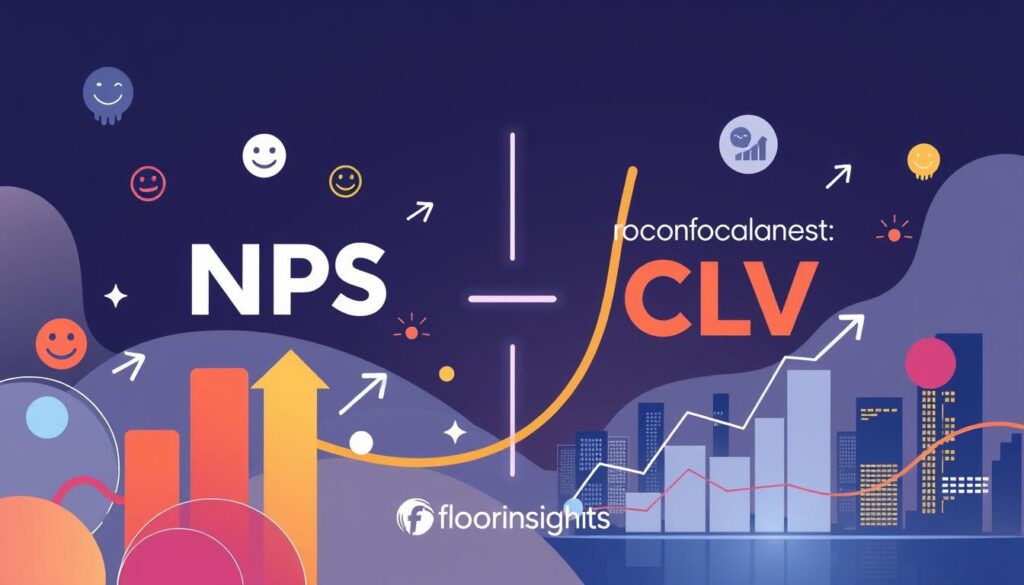
“Improving the Net Promoter Score can lead to a significant increase in customer lifetime value and, ultimately, stronger financial performance.”
By aligning their customer acquisition, retention, and growth strategies with the insights gained from NPS and CLV, businesses can unlock new opportunities to drive sustainable growth and success.
Conclusion
In conclusion, the Net Promoter Score (NPS) is a pivotal metric that distinguishes high-performing companies from their competitors in India’s dynamic market. By focusing on improving customer loyalty, advocacy, and the overall customer experience, businesses can achieve a higher NPS and reap the benefits of increased revenue, customer retention, and sustainable growth.
As the Indian market becomes increasingly competitive, companies that prioritize the voice of their customers and continuously strive to enhance their Net Promoter Score will be well-positioned to outperform their peers and solidify their position as industry leaders. Through strategies that foster customer engagement, address feedback, and deliver exceptional experiences, we can unlock the true potential of the Net Promoter Score and drive long-term success in the Indian market.
Ultimately, the Net Promoter Score is a powerful tool that enables businesses to better understand and cater to the needs of their customers, ultimately leading to increased customer lifetime value, stronger brand loyalty, and a competitive edge in the industry. By embracing the insights and strategies surrounding the Net Promoter Score, we can navigate the complexities of the Indian market and emerge as market leaders in the years to come.
FAQ
What is Net Promoter Score?
The Net Promoter Score (NPS) is a customer loyalty metric that measures the willingness of customers to recommend a company’s products or services to others. It is calculated by asking customers a single question: “How likely are you to recommend our company/product/service to a friend or colleague?” and subtracting the percentage of “detractors” (those who score 0-6) from the percentage of “promoters” (those who score 9-10).
Why is NPS important for businesses?
NPS is an important metric because it provides a clear and actionable insight into customer loyalty, which is closely tied to a company’s long-term growth and profitability. Companies with a high NPS consistently outperform their peers, demonstrating the strong link between customer loyalty, advocacy, and business success.
How does NPS relate to customer satisfaction?
The Net Promoter Score is closely linked to customer satisfaction, as it measures the likelihood of a customer recommending a company’s products or services. Companies with high NPS typically have high levels of customer satisfaction, as satisfied customers are more likely to become loyal promoters of the brand.
What is the relationship between NPS and customer experience?
The Net Promoter Score is a strong indicator of the quality of a company’s customer experience. Businesses that excel at providing exceptional customer experiences tend to have high NPS, as satisfied customers are more likely to become loyal promoters. By continuously enhancing the customer experience, companies can improve their NPS and drive higher customer retention rates.
How does NPS impact customer engagement?
Engaged customers are more likely to become loyal promoters, as reflected in a company’s Net Promoter Score. Effective customer engagement strategies, such as providing personalized content, offering exclusive experiences, and fostering two-way communication, can help businesses build stronger relationships with their customers and improve their NPS.
Why is customer feedback important for NPS?
Customer feedback is a crucial input for improving a company’s Net Promoter Score. By actively soliciting and acting on customer feedback, businesses can identify and address pain points, enhance the customer experience, and ultimately, increase customer loyalty and advocacy.
How does NPS relate to customer retention?
A high Net Promoter Score is a strong indicator of a company’s ability to retain its customers. Customers who are loyal promoters of a brand are less likely to churn, as they have a deep emotional connection and are invested in the company’s success. By focusing on improving their NPS, businesses can increase their customer retention rates and build a more sustainable, profitable customer base.
What is the connection between NPS and customer advocacy?
Customers with a high Net Promoter Score are more likely to become advocates for a company, actively promoting and recommending its products or services to their friends, family, and colleagues. Customer advocacy is a powerful driver of growth, as referrals from loyal customers are often more effective and trustworthy than traditional marketing efforts.
How does NPS impact customer referrals?
A high Net Promoter Score is closely linked to a company’s ability to generate valuable customer referrals. Customers who are promoters of a brand are more likely to recommend the company’s products or services to their network, leading to new customer acquisitions at a lower cost.
What is the relationship between NPS and customer lifetime value?
The Net Promoter Score has a direct impact on a company’s customer lifetime value (CLV). Customers with a high NPS, or loyal promoters, typically have a higher CLV due to their increased likelihood of repeat purchases, reduced churn, and greater advocacy through referrals. Investing in initiatives that improve the Net Promoter Score can lead to higher customer lifetime value and, ultimately, stronger financial performance.

